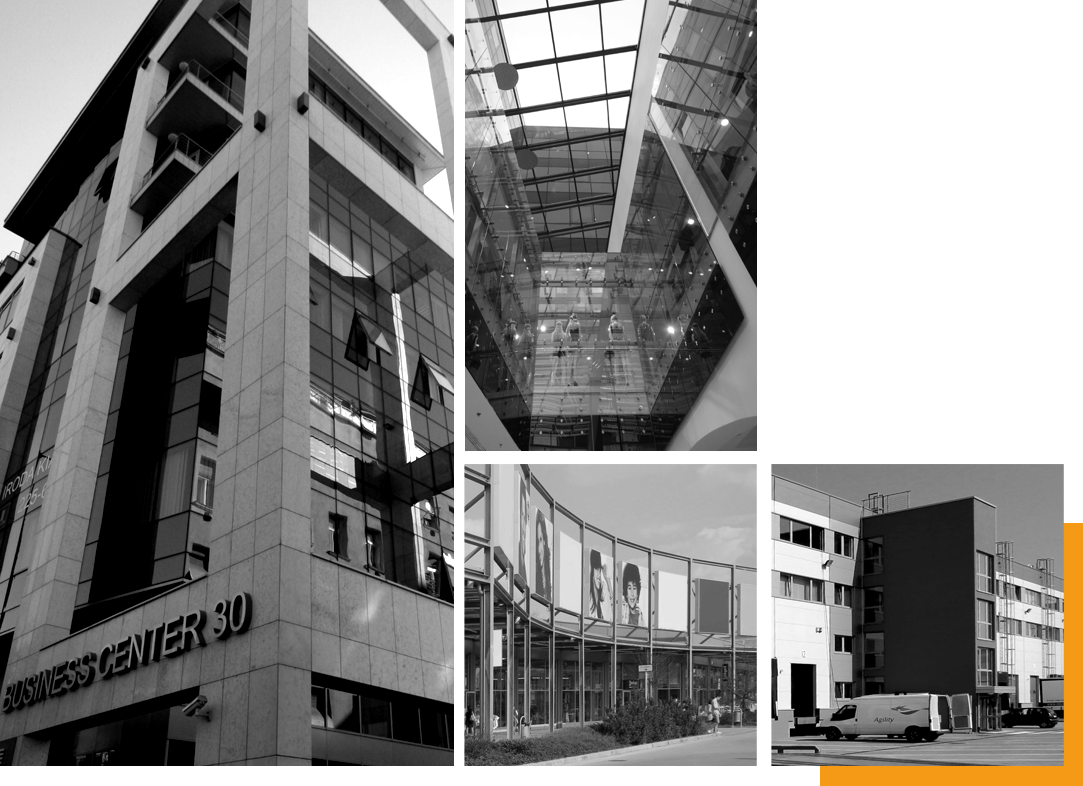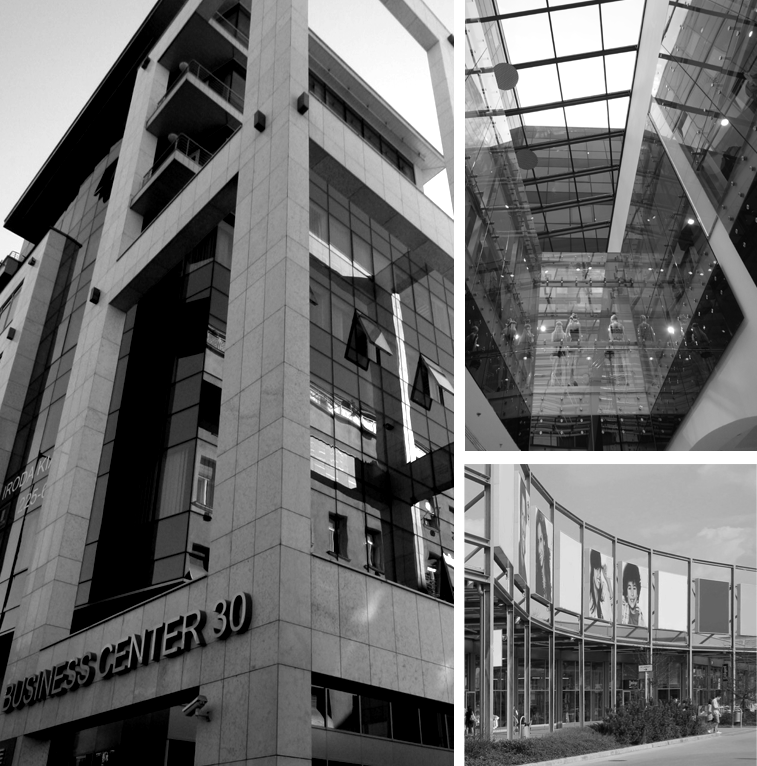Real estate law – with experince and passion

dr. György Madej
Dealing with real property became my passion over 20 years spent as a lawyer specializing in property development, management, and financing. In the real property sector, my clients and I have the opportunity to enrich, sustainably develop, and improve our environment together.
As a project-oriented professional, I am especially fond of adapting to the unique rhythm of a real property investment, my client’s needs, and the characteristics of specific realties, adding to them my personal professional touch through shared teamwork with my client. I feel satisfied when the parties I have led through a property transaction are both happy with the value created together.

Solution-oriented
risk mitigation
Chinese doctors in ancient times were paid when men were healthy. This is in contrast with the Western practice of paying for curing a disease.
As a property lawyer, I consider my main task to be the creation of a safe and risk-minimizing legal environment for my clients. My mission is to weigh potential legal risk factors and prevent problems that might cripple a project or demand significant sacrifices.
It is insufficient to merely recognize problems; it is also necessary to handle them. I try to head off risk factors with optimal, long-term solutions that consider the needs of my clients.

Specialized in
real estate law
I have specialized in real property law and related areas (M&A, commercial deals, and litigation law). I was led to real property law by my desire to build and create.
I have gained work experience in real market environments and at international law firms, as well as with a market-leading property developer and an influential property financier in the banking sector.
Operating on
the full spectrum
of the property market
I have significant professional knowledge and experience in every segment of the real estate market. Thus, I can constructively support in all areas. I can appreciate every participant’s angle in a contract, map their positions, and represent their interests in the most effective manner. My greatest joy is to highlight a new aspect of a problem presented to me, one which helps my client make a decision based on this new information.


Which participant in the property market are you?
Close
Real property developer and investor
Property development is value creation. As your legal representative, I will guarantee the careful preliminary assessment of the development process, in order to create risk-free value for both investors and buyers.
- It is worth vile to exercise due diligence to clarify the parameters and idiosyncrasies of a property and recognize non-standard risks. Such risks might include how easily the lease contract may be terminated, additional obligations prescribed by building codes, or condominium-related commitments.
- When structuring a transaction, the typical investor is usually thinking in terms of a standard prewritten Sale & Purchase Agreement or some escrow solution. In my experience, it is important to consider the future buyer’s and developer’s requirements in advance, while structuring of agreement, thus giving you a wider range of options.
- We must consider the sales process of the completed property while executing the transaction (whether for use or sale). Pursuing these perspectives is already justified in the acquisition phase.
- Coming to an agreement with all the parties involved is the most sensitive part of the development process. I have participated in numerous projects where the owners of neighboring buildings were opposed to the development and used all the legal means available to them to block the process or delay it for financial gain. I have always solved these cases by harmonizing the interests of developers and opponents, thus creating a long-term legal solution that supported the investment.
- It is a good idea to establish progressive legal solutions during the process of acquiring permits. These could include offering advantages to local residents or accepting a commitment to protect a local feature of cultural value.
- Many developments are created as condominiums. This entails the risk that the Deed of Foundation will not consider the needs of the development. This, in turn, might cause future conflicts between buyers, tenants, and the investor. It is important to pre-empt such friction.
- It is especially important for international investments to chart and understand the legal cultural traditions of the target country. In such situations, my task is to find the functionally equivalent legal institutions for the decision maker.
Borrower
Real estate loans are usually issued through uniform, detailed prewritten contracts. Banks typically secure themselves a wide range of options to oversee how you use the loan and potentially to act against you. Therefore, you might want to ask a professional opinion on the credit and collateral agreements you are presented before taking out a real estate loan, in order to ensure you get better terms.
- You must try to reach a balanced credit and security agreement that, while it obviously limits the owner’s interests, protects the borrower, from unilateral and disadvantageous bank decisions.
- The basic financing terms are not the only important factor. Calculation methods for the project’s financial indicators must be worded carefully, since they can create significant costs for you.
- It is imperative to prevent the bank from executing the security agreement or making reimbursement claims unilaterally, without a cure period, as a result of an incorrect interpretation of the contract.
- Banks often demand more securities than necessary, or they try to impose conditions which make it harder to manage the property which may be simplified by adequate legal representation.
- A frequent mistake with syndicated loans is that Anglo-American standard contracts are applied uncritically, without regulating the authority of specific banks and their agents. This might make it impossible to repay the loan under optimal terms.
- When taking out a loan with a foreign creditor, it is also important to consider how that other country’s legal framework can be applied to Hungarian law, as well as how to harmonize the loan agreement and potential security agreement appropriately with the country where the property is located.
Property fund manager
The world of property funds demands familiarity with both the property and the securities markets. The relevant legal regulations are multilayered and complex, ranging from EU directives to the regulation of borrowing limits. Yet, this complex material often lacks explicit answers to practical questions that arise during specific property transactions. My task is to give you practical, regulation-compliant solutions to the problems that arise daily.
- The loaning and investment rules of a fund determine numerous details and fundamentally affect its operation. Therefore, you must pay special attention to these rules during a property transaction.
- The operation of the fund must be planned in coordination with the Hungarian National Bank, the granting authority for the fund’s Management Regulations. Contracts between the fund manager and the depositary must be drafted with transparent, strictly regulated rules.
- It is especially important for appraiser’s contracts to be written in compliance with legal regulations.
Property manager
Property management is a strategically important activity, which can multiply returns on an owner’s sale efforts, but might utterly nullify gains if done carelessly.
- I believe the most important legal aspect of property management is to meet the buyers’ needs through pre-regulated, future-oriented, foreseeable processes.
- Property management is a problem-solving process that requires flexibility. An especially important part of that flexibility is choosing the right tools to satisfy the needs of your buyers. For this, you need to create legal arrangements which make the right solution immediately available to you – with foreseeable costs that are even planned out beforehand.
- Property management is highly dependent on the constant monitoring of legislature changes, since routine solutions are not always appropriate in a rapidly changing economic environment.
- Managing property involves a great deal of GDPR-based data management, which necessitates appropriate internal regulation and confidentiality agreements with suppliers.
Building Contractor
Construction is the riskiest and most complex area of the property sector. The tasks of a legal representative range from providing expert opinions on a complex network of contracts to finding legal solutions to specific contracting problems.
- Careful examination of the contractor’s legal liabilities is the alpha and omega of contractor agreements. As a contractor, you are not only responsible for building a physical structure. The client often also expects you to bear in mind owner’s interests. This is an understandable (and, in fact, necessary) requisite of a successful construction project, but one must still ensure, during the drafting of the contract, that this will not become an incalculable obligation.
- Another sensitive point of building contracts is the question of scheduled payments, which often enable financial misuse, especially in the case of pre-financing.
- When it comes to scheduling and payments, the most important issue is to guarantee you wide freedom when handling amendment requests.
- The work to be done should always be assessed carefully during the delicate phase of the project, and the legal process of such assessments should be, ideally, carefully regulated. If you do not have the opportunity to perform the assessment, settlement should be governed by the open book principle.
- The careful handling of a construction trusteeship (a special framework introduced in Hungary in 2009, to prevent chains of debt between the employer and the contractors and subcontractors) is extraordinarily important in the case of real property projects where the investment exceeds the EU threshold for public procurement. The decision-making authority of the trustee (a third party referred to as the construction escrow agent) should be regulated in detail within the relevant contract.
- The construction contract must enable you to effectively pursue your lawful interests against the client’s post-contract demands.
- Should an accounting dispute arise between you and the client, the protection of property and the ownership of construction materials used in the building process will necessarily become a sensitive topic. It is advised to demand preliminary regulation to guarantee fair settlement.
- The system and process of claiming securities should be given thorough consideration, in order to prevent abusive claims.
- If you are using subcontractors, you should provide a subcontracting framework to ensure that specialized work can be carried out with predetermined conditions.
Architect
Planning is the most subjective part of property management. Modern buildings must pass not only aesthetic expectations and the economic needs of the client, but also the challenges of climate change.
- You, a creative artist, and the client must reach a balanced agreement that gives both sides an appropriate role.
- It is especially important that the client’s expectations and requirements not compromise the conceptual unity of the creation.
- As Architect, you are also a project manager for Your work in the planning process must influence the actual construction of the structure, and your right to do so must be secured in the agreement.
- If you are offering project management services, your client’s powers of approval must be regulated in the contract, along with deadlines and decision-making powers.
- In the case of scheduled plan submissions, the details of scheduling and payment installments must be carefully coordinated in the planning contract.
- The cooperation of involved parties often breaks down due to unforeseen reasons. Since such a situation cannot be anticipated, the parties must be prepared to conclude their working relationship even under such circumstances, without recourse to legal action or dispute settlements.
Commercial estate agent
The work of estate agents is the least-respected role in the real estate sector. Agents are often accused of not even providing a real service, only connecting to market actors. In fact, this activity requires profound professional knowledge and experience.
- The agent’s contract must clearly describe the content of your services, which provide a real value for the client. Your job is not just to act as an intermediary, but also to conduct market research and contrast the perspectives of supply and demand, activities that require significant knowledge and familiarity with the area.
- The agent’s contract must specify the criteria of success and the details of the agent’s fee, in order to guarantee that your work will be honored appropriately.
- The legal framework for performing property sales merits special attention. You cannot achieve real results without the client’s cooperation, so you must ensure that cooperation in numerous points of your contractual relationship.
Landlord
Letting is a risky activity that may hide pitfalls from maintenance problems lying in the daily operations through handling financing relations to fulfilling tenant interests.
- It is of prime importance to ensure control over the real estate and the leased property. Although certain tenant interests deserve recognition, a landlord may not become “hostage” of its own tenants.
- Owners rights and interests may be safeguarded through carefully structuring the lease collaterals and vacancy and return conditions.
- It may be reasonable to allocate in the terms and covenants of the financing agreements relating to a particular lease and form the lease relationship accordingly.
- In the event of a possible debate, a learned legal counsel with adequate experience may act and mediate the legal debate or may act most effectively still always upmost lawfully in all respects.
Tenants
Whether it is an office building, a shopping mall, or a residential property, the tenant is in one of the most vulnerable positions of the economy. The tenant “lives” in somebody else’s property. He is not an owner, but he is still intimately tied to the rental unit. Therefore, the rights of the tenant need priority protection.
- The stability of the lease must be sustained in the contract: Termination, renewal, and the right of withdrawal must be regulated, along with the evacuation of the rental unit.
- Preventing rental unit-related non-conformity is an important element of rental agreements. Maintenance of the quality of both the physical attributes of the rental unit and the services provided by the lessor (sometimes the owner or landlord) must be regulated in detail.
- For commercial leases, the system and process for the declaration of expenditures must be regulated in detail.
- The extent of the securities available to the lessor is very loosely regulated by law. Lease contracts must pay special attention to the prevention of potentially abusive securities claim by the lessor.
- In my experience, most lessors are unwilling to consider the special aspects of their client’s activities when drafting their lease framework. This can appear in the regulation of permitted use, pricing, or even lease duration. A lawyer’s most important task is finding possibilities to customize the lease’s framework to match the needs of the lessee (sometimes renter or tenant).
Tenant
Whether it is an office building, a shopping mall, or a residential property, the tenant is in one of the most vulnerable positions of the economy. The tenant “lives” in somebody else’s property. He is not an owner, but he is still intimately tied to the rental unit. Therefore, the rights of the tenant need priority protection.
- The stability of the lease must be sustained in the contract: Termination, renewal, and the right of withdrawal must be regulated, along with the evacuation of the rental unit.
- Preventing rental unit-related non-conformity is an important element of rental agreements. Maintenance of the quality of both the physical attributes of the rental unit and the services provided by the lessor (sometimes the owner or landlord) must be regulated in detail.
- For commercial leases, the system and process for the declaration of expenditures must be regulated in detail.
- The extent of the securities available to the lessor is very loosely regulated by law. Lease contracts must pay special attention to the prevention of potentially abusive securities claim by the lessor.
In my experience, most lessors are unwilling to consider the special aspects of their client’s activities when drafting their lease framework. This can appear in the regulation of permitted use, pricing, or even lease duration. A lawyer’s most important task is finding possibilities to customize the lease’s framework to match the needs of the lessee (sometimes renter or tenant).

Learning, adaptation,
improvement
Throughout my life and career, the desire to learn, experience, and grow has been the foremost motivation of my studies, my work, and my private life.
I returned to the classroom at the age of thirty-nine and earned an Expert Economist’s degree. The chance to spend time abroad also attracted me as a way to get to know other cultures and ways of thinking. I started riding motorbikes at the age of thirty-three. I began boxing and playing tennis at forty-three, and I am still pursuing both hobbies with a passion.
The same desire to learn guides me in my work with all of my clients, as I seek challenges, as well as mental and intellectual growth. For me, the most attractive aspect of my work is that learning from my clients allows me to constantly improve and enrich myself professionally.

Contact
Madej Law Office
E-mail address: madej@madej-law.hu
Phone number/Fax: +36 1 787 9430
Mobile: +36 30 401 6226
